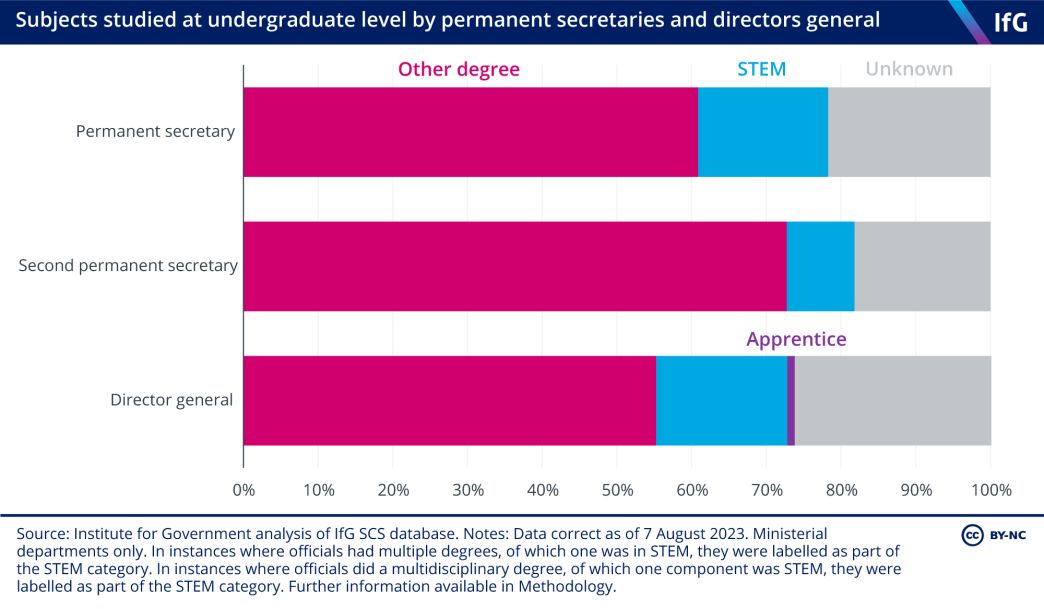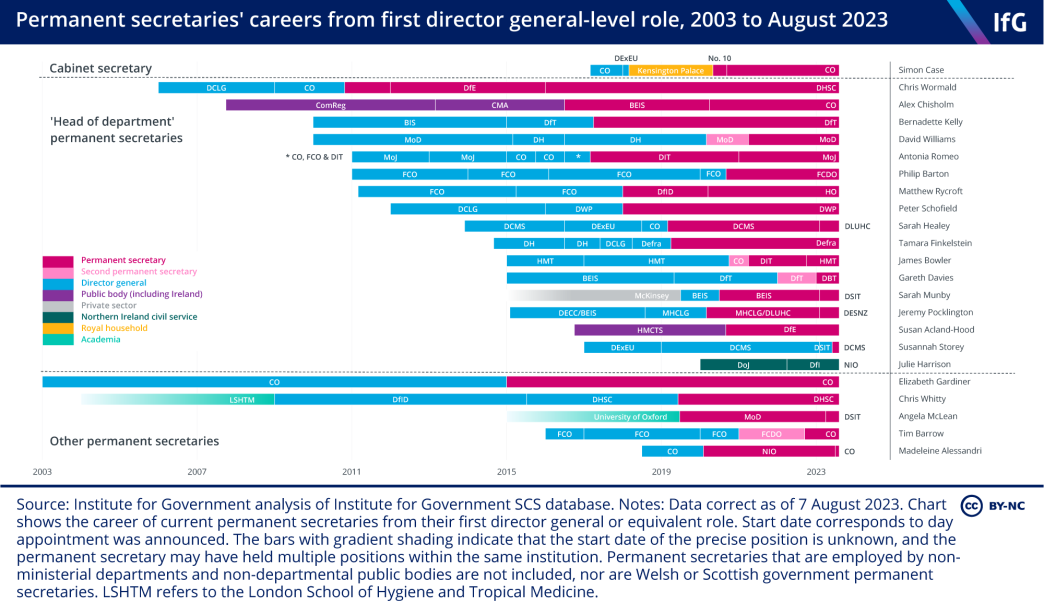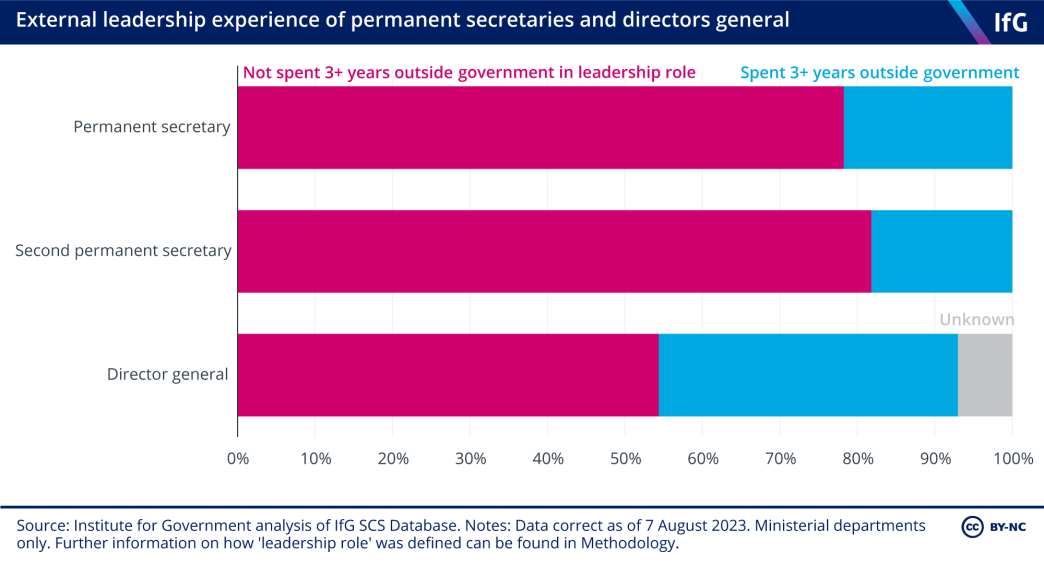Analysis paper
Who runs Whitehall?: The background, appointment, management and pay of the civil service’s top talent
A data-led examination of the permanent secretaries and directors general in Whitehall’s 19 main ministerial departments.
Jordan Urban
Sameer Aiyar-Majeed
Regine Røren

This report reveals, for the first time, the backgrounds, appointments, pay and management of 148 of Whitehall’s top civil servants.
The IfG’s findings make clear how many senior officials lack valuable experience of work outside the civil service, and highlights the need to improve the way top officials are appointed to the most senior roles and managed once in post.
The report finds that:
- Under a quarter possess a science, technology, engineering or mathematics (‘STEM’) undergraduate degree (23%), compared to approximately 44% of all UK graduates.

- More than half attended Oxbridge in some capacity (52%), including almost three quarters of permanent secretaries (74%).
- Almost half of permanent secretaries and directors general (DGs) are initially externally recruited (45%). A lower 16% entered their current role from outside the civil service.

- Over two thirds of top officials have some form of outside experience (68%), although only 36% of them (and 22% of permanent secretaries) have had experience in a leadership role outside government for more than three years.

- Policy professionals have less outside experience, with 30% initially externally recruited compared to, for example, 80% of operational delivery professionals.
- The policy profession is numerically (43%) and culturally dominant in the civil service’s top tier.
- Only 12% of permanent secretaries and DGs are based outside London.
To improve the way the civil service recruits and retains top talent, the report recommends:
- Modernising the appointment process for top jobs by moving away from the current rigid process which is easily gamed.
- Strengthening senior officials’ involvement in appointments, and getting ministers’ to engage properly where appropriate.
- Fostering a national culture of contributing to government. The civil service should be much more active in selling itself as a career choice.
- Incentivising senior officials to stay in post longer. Formal minimum terms of service, financial bonuses paid for reaching project milestones, and financial penalties levied if leaving before an agreed time period should all be considered.
Watch our event on how the civil service can recruit and retain top talent
- Topic
- Civil service
- Position
- Cabinet secretary Permanent secretary
- Department
- Cabinet Office
- Publisher
- Institute for Government